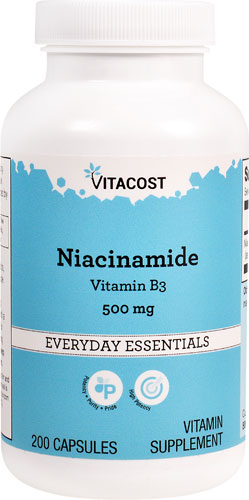If eyes are the windows to the soul, then skin is the skylight. Skin, the largest organ in our bodies, reveals our stress levels, our diet and even our sleep habits. “All of these factors have a profound impact on our skin,” says Valeri Treloar, an integrative dermatologist based in Newton, Mass., and coauthor of The Clear Skin Diet (Cumberland House, 2007).
“Stress impairs skin's barrier function and slows wound healing and sleep deprivation in turn raises stress levels. As for minimizing and even preventing oxidative damage, diet is the best source of antioxidants for the skin.” Treloar makes it clear that no one pill will provide a complete fix and that taking high doses of any supplement without the guidance of an expert can be dangerous.
With those caveats in mind, Treloar has found the following supplements to be helpful in her practice. She's found that as skin ages, it becomes more receptive to careful ministrations. The skin supplements below can help you cultivate if not the fountain of youth, as least some of its glow.
1. Green tea
One of the most potent antioxidants, green tea “participates in liver function, and helps break down toxins,” says Treloar. The most abundant green tea polyphenol, EGCG, has been linked to skin health in a study published in the April 2003 issue of Journal of Pharmacology and Experimental Therapeutics. The researchers found that chemicals in green tea could not only bolster the immune system but also help dying skin cells.*
Other research shows that EGCG and green tea polyphenols have anti-inflammatory properties that may benefit skin health. And this is just the tip of the tea leaf—the list of potential benefits derived from green tea is extensive, and includes the tantalizing possibility that it neutralizes damage done by UV rays.
Try it: Treloar suggests taking 500 mg of green tea extract a day.
2. Ceramides
Ceramides, one of the main components of the lipid layer of the skin, play a huge role in water retention and skin hydration. Ceramides hold onto water molecules and play a pivotal role in keeping skin moisturized. As we get older, ceramide levels decrease, resulting in thinner skin that heals much more slowly.
While cosmetic companies have been formulating topical skin care products containing ceramides for wrinkles and dry skin since the early 1990s, there has been impressive research lately that supports ceramides as a viable oral supplement. Skin texture and skin barrier function may benefit from consistent ceramide supplementation.*
A recent study published in the April 2011 issue of the International Journal of Cosmetic Science found a significant increase in skin hydration among women who took a wheat extract rich in ceramides.
Try it: Treloar suggests taking 200 mg of ceramides a day.
3. Niacinamide
A form of vitamin B, niacinamide has anti-inflammatory qualities that provide ample benefit to the skin. In this case, Treloar finds a topical solution makes more sense than an oral supplement. “There is promising research linking topical niacinamide solutions with reversing discoloration, minimizing fine lines and reducing acne,” says Treloar. In the last decade or so, many cosmetic companies have jumped on niacinamide's beautifier bandwagon and started including it in their formulations. A study published in the October 2004 issue of the International Journal of Cosmetic Science showed that a moisturizer containing 5 percent niacinamide provided significant improvements in wrinkles, texture and blotchiness.*
Try it: Treloar recommends lotions that contain 5 percent niacinamide.




